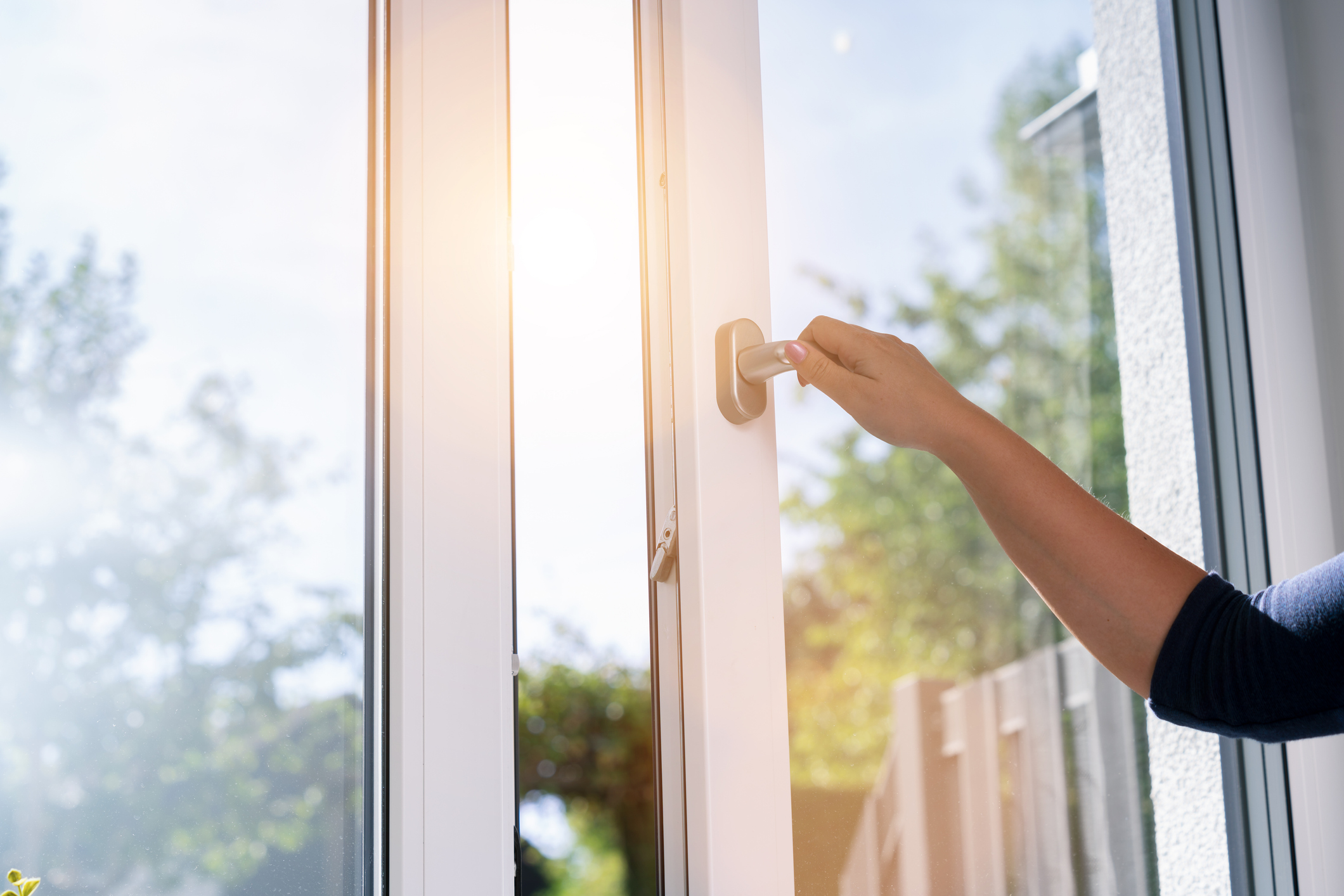Get Easy Health Digest™ in your inbox and don’t miss a thing when you subscribe today. Plus, get the free bonus report, Mother Nature’s Tips, Tricks and Remedies for Cholesterol, Blood Pressure & Blood Sugar as my way of saying welcome to the community!
To lower your coronavirus risk at home, open your windows

The coronavirus pandemic has had many of us locked in our homes for months now.
Yet, studies show that the virus is transmitted far more easily indoors than out. So, if someone in your household has been exposed to the virus, the likelihood that you will end up with the virus increases when you’re in a confined space together.
Luckily, there’s one simple thing you can do to help keep yourself and your family safe at home and reduce the chance of coronavirus spread. It all has to do with airflow.
Analyzing super-spreading events
Although there’s still so much we just don’t know when it comes to the coronavirus and how to protect ourselves, a number of recent studies have given us insight into how and when the virus is most likely to spread from one person to another.
Not only have these studies demonstrated why your home could be a dangerous place, but they’ve also come with good news of easy ways to stop that spread.
The first of these studies was conducted by researchers from the Division of Epidemiology and Biostatistics at Hong Kong University Medicine. This team was analyzing what they termed “super-spreading events” that occurred across the globe from U.S. meatpacking plants to call centers in South Korea.
And they found that just 20 percent of COVID-19 cases accounted for a whopping 80 percent of transmissions!
But how is that possible? How can a small percentage of cases lead to the majority of transmissions?
According to the team, these super-spreading events occurred in areas that were crowded and poorly ventilated — in other words, tight quarters without a lot of airflow that allowed aerosolized coronavirus droplets to hang in the air exposing everyone.
And guess what…
Your home could easily fall into that category.
Even worse, the researchers found that the more time spent in an environment like that, the higher the likelihood of transmission. And with many of us now at nearing 90 days stuck at home, this could mean serious issues.
Air conditioning and viral spread
And that’s not all… a second study out of China found that air conditioning can increase viral spread.
With even hotter days ahead, the air conditioning that keeps your home comfortable could increase the risks of viral transmission from one person to another.
So when you combine the possibility of one person in your home being exposed to the virus with tight quarters, lack of ventilation and air conditioning this summer… it could be a recipe for disaster.
According to information found at Forbes.com:
“My advice: Supply households with 100% outside air, do not use recirculated air,” Qingyan Chen, who studies disease spread through ventilation as Purdue University’s James. G. Dwyer Professor of Mechanical Engineering, told Forbes.
Chen says the most essential practice around air conditioning and COVID-19 is to avoid hanging out near air conditioning exhaust, as this is where COVID-19 particles may be trapped. If you can wait three to four months to change your air conditioning filter, you should; otherwise, use gloves and discard the filter in a trash bag immediately.
Ventilation for safety
According to the research teams who conducted these studies, there’s a simple way to combat that viral spread and protect yourself and your family and all it takes is opening a window (or two or three).
The key, especially if someone you live with is sick, is to go for “maximum ventilation,” possibly getting all of the circulating air in your home from outside.
That ventilation can help shift out the virus-laden air so that the air you do breathe in has a lower concentration of the virus, reducing your risk of contracting the illness — that’s why it’s part of the guidelines recommended by the CDC, along with avoiding crowding, continuing to practice good hygiene, disinfecting and staying home if possible.
Sources:
COVID-19 Outbreak Associated with Air Conditioning in Restaurant, Guangzhou, China, 2020 — CDC
You’re most likely to catch the coronavirus in a poorly ventilated space. That makes offices very risky. — Businessinsider.com
Just Stop the Super Spreading — The New York Times












